It was the defining book of my early adolescence and, it seemed at the time, everybody else's as well. The Secret Diary of Adrian Mole Aged 13¾ was the only book I can remember becoming a phenomenon, in the same way that a film or a TV show or a band would become a phenomenon. It swept through my school like a craze, like the Rubik's Cube with knob jokes, or Panini Football '81 stickers with a streak of social comment about Margaret Thatcher's Britain.
Indeed, it became such a craze that my school eventually banned it, with exactly the effect you might expect: it made the book even more popular, lending Adrian Mole, an Abba fan who still wore flares in the early 80s, a deeply unexpected sense of outlaw cool. Perhaps they banned it because of the amount of time its hero spends obsessing about his penis and reading a porn magazine called Big and Bouncy; they were saving us from ourselves. More likely because banning it formed part of the English department's apparently dauntless campaign to dissuade pupils from reading anything at all: the classroom was lined with Penguin Classic editions of The Moonstone, Dombey and Son, Jane Eyre, and sundry other novels carefully handpicked for their lack of appeal to your average 12-year-old boy. They were the kind of books that even Adrian Mole, with his pretensions to being an intellectual ("I wrote to Malcolm Muggeridge asking what to do about being one"), would have considered a schlep.
The ban notwithstanding, something similar was clearly happening all over the country. The Secret Diary of Adrian Mole was published on 7 October 1982: three days, coincidentally, after the Smiths played their first gig, which rather makes the week commencing 4 October 1982 the zero hour of solipsistic 80s angst. Initially, it received little fanfare, as befits a book that was written in secret: its author Sue Townsend had been writing for 20 years, always hiding the results from her then-husband and children. A glowing review by Jilly Cooper first pushed it into the bestseller chart, but teenagers kept it there "for what seemed like years," laughs Townsend down the phone from her home in Leicester, where she has just completed a new novel, The Woman Who Went to Bed. "At one point the hardback and the paperback were both No 1. Then The Growing Pains of Adrian Mole came out and that went to No 1. They just stayed there. There was cheering all over literary London when they finally weren't No 1 any more. I was carving up the bestseller list with these two bloody books."
The thing is, she says, the book wasn't even aimed at teenagers: "It was written for parents, that was the intended audience. It was for the mothers of teenage boys."
That seems obvious now. Reading it as a 40-year-old father, I recognise it as a book clearly written by one of my own: Mole is simultaneously lovable and completely exasperating, and as anyone who has had kids will tell you, love and complete exasperation are pretty much the defining emotions of parenthood. I find my interest resting less on Mole and his on-off girlfriend Pandora than his mum and dad, particularly his mum Pauline, with her ambitions crushed by the suburbs and her late-flowering feminism and her fantastic line in The Growing Pains about how the only thing more boring than listening to other people's dreams is listening to other people's problems.
Indeed, reading it as a 40-year-old father, I occasionally wonder what I got out of it 30 years ago. I missed almost everything I now love about the book. I didn't notice how doleful its very Midlands sense of humour is – like a long resigned sigh you laugh at – or how beautifully drawn the other characters are: not just his parents, but Bert Baxter, the octogenarian communist who refuses to die until he sees capitalism dismantled, and Pandora's earnest, Guardian-reading family, their marriage torn asunder by the foundation of the SDP. I didn't get a lot of the references. I had no idea who Iris Murdoch was, nor Malcolm Muggeridge, nor indeed RD Laing, whom one of Mole's teachers doorsteps during a school trip to London in the hope he will give the delinquent Barry Kent "a quick going-over". And I completely overlooked how Townsend uses Mole's naivety as a vehicle for the occasional burst of more vicious wit: "Bert showed me a picture of his dead wife," he writes. "It was taken in the days before they had plastic surgery."
"That would have been a completely serious point to Adrian too," says Townsend. "He wouldn't think there was any humour in that at all. When it was done as a radio play that was what was so wonderful, the actor who read it was 13¾ as well and he didn't get it at all. He read it without any semblance of humour in it: he didn't know."
And 30 years ago, that was the point. I identified with Adrian Mole, which on one level seems bizarre – he is a self-obsessed prig and a hypochondriac to boot – but on another seems perfectly understandable. His brand of adolescent angst felt and still feels more realistic and relevant to me than any other hero of the great teenage novels I went on to read. Holden Caulfield might have been alienated, but he knew how to book into a hotel, get served cocktails and hire a prostitute, all of which marked him out as almost unfathomably exotic and alien. Adrian Mole couldn't even repaint his bedroom without the Noddy wallpaper showing through, which seemed much more my style.
I fell so in love with Mole that, in lieu of any new books about him, I bought Joe Orton's diaries, simply because they had a quote from Townsend on the cover, thus adding myself to a long line of teenage boys who found an encounter with Joe Orton to be rather an eye-opening experience. And I fell so in love with Mole that I made the fateful decision to start keeping a diary of my own. Actually, fateful isn't the right word: it implies something happened. That was the problem. Nothing happened. The only way my diary would ever have been considered fateful was in the event that someone read it and was bored to death as a result.
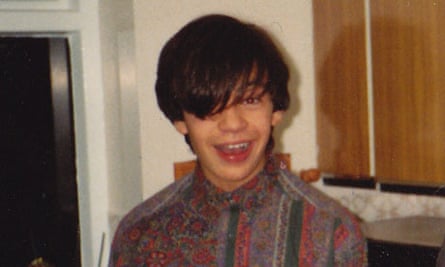
Adrian Mole may have been largely oblivious to the events that were taking place in his life - "there's always drama swirling around him, affairs happening, people falling in love," says Townsend, "but most of it passes him by. He really believes that his mother and Mr Lucas won't let him in the kitchen because they've got their hands full fixing the boiler" – but at least he had events to be oblivious of. I, on the other hand, embarked on a career as a diarist unabashed by the fact that nothing of interest whatsoever took place in my life. I went to an all-boys school, so there was no Pandora and thus no need to spend time worrying about the size of my thing. Our school trips passed without a Barry Kent-like figure going awol, then getting arrested in a sex shop for the theft of some Grow It Big cream and two "ticklers". My parents stubbornly declined to lose their jobs in the recession, or get wildly drunk or run off to Sheffield to set up home with an insurance salesman ("Was it an act of God?" cackles Bert Baxter, brilliantly, when Mole informs him of this turn of events).
Furthermore, I didn't use it to record my feelings either, thus managing the remarkable feat of being even more buttoned-up than Adrian Mole. I suspect my reluctance to do so might have had something to do with growing up in Yorkshire, a part of the world famed for many things, but never a fatal lack of reserve on the part of its male population. For all I know, it might have changed with the times – the streets of Keighley might these days be thronged with men weeping on strangers' shoulders as they unburden themselves of their innermost woes – but in the Yorkshire that I knew, discussing your feelings as a man wouldn't have been considered a sign of weakness so much as proof that you were mentally ill. So I didn't. "Got up, went to school, came home, had tea, played computer games, went to bed," read my diary, over and over again, like someone making an incredibly heavy-handed point about the mundanity of middle-class life in the suburbs.
The book's other great appeal, even before my school banned it, was that it carried the slight whiff of the forbidden. Perhaps because it wasn't actually intended for kids, perhaps because Townsend "thought it was a scandal that children didn't know about their sexuality, that no one ever talked about boys and what happened to them at that age", the book was pretty racy stuff, at least by the standards of the time. Watch a sitcom from the early 80s and you can still hear a slight gasp in the audience's laughter when a character says "bloody": two years before Adrian Mole was published, the BBC had banned the Specials' Too Much Too Young because it featured the word "contraception". I can remember a cassette of the Jam's Setting Sons being passed around like contraband at my school: astonishingly, one song used the word "fucking". So did 12-year-old schoolboys, of course, and so did The Secret Diary of Adrian Mole: decorously asterisked out, but you didn't need to be an expert in semantics to know what had been censored. It addressed sex and drugs, albeit through a cloud of bathos, which was, and probably still is, how most teenagers experience them. Mole ends the book hospitalised after attempting to sniff glue ("nothing spiritual happened but my nose stuck to the model aeroplane"). Almost uniquely, it pulled off the trick of appearing to speak to teenagers unmediated.
Speaking to Townsend 30 years later, I am struck by the fact that she sounds exactly like I had thought the author of Adrian Mole would sound when I was 12, like a kind of dream auntie, with an innate understanding of teenagers, a propensity for hooting with laughter and telling funny stories: about her friendship with the late Jeffrey Bernard, her time working in youth clubs and a South American tribe she once read about who banished their children at age 12. "Imagine the meeting where they decided on it! 'God, what can we do about this? Why won't they come out of their hut? If they kick that football into the fire again…'"
And occasionally, she sounds remarkably like Adrian Mole. When I tell her about my school banning the book, she laughs again. "That's so ridiculous. I can remember being sent out of class for reading Madame Bovary under the desk when I was about 14, instead of listening to some crappy thing about British fishing methods, dredging as opposed to trawling. Thrown out for reading a classic!" Just my luck! No one notices I'm an intellectual!
But perhaps we all sound remarkably like Adrian Mole sometimes. Townsend kept writing about him: eight books in total, all brilliantly funny, dragging him from the height of Thatcherism to the dying days of New Labour, from acne to prostate cancer. In some ways, that first book reads like a period piece now, perfectly capturing a Britain that I can just about remember, a grimmer, greyer, more earnest country than the popular image of the early 80s as a riot of shoulder pads, dayglow legwarmers and New Romantics would have you believe: a country where everybody smoked indoors all the time, the only thing open on Sundays was the garden centre, Channel 4's idea of prime-time programming was In The Pink ("a feminist cabaret celebrating women's lives through poetry, dance and music") and the letters page of Smash Hits hosted what editor David Hepworth memorably described as "letters from schoolgirls about the miners' strike, written on Holly Hobby notepaper". Yet something about the central character transcends his era and even his age. After all, his default position is that his is the solitary voice of sanity in a world gone mad. Who can honestly say they don't feel like that on a regular basis?
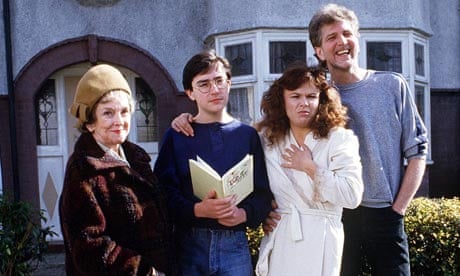
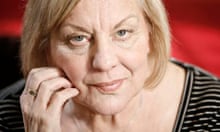

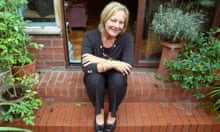
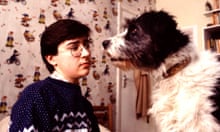
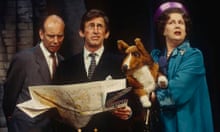
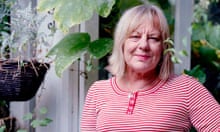
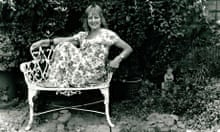


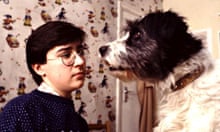
Comments (…)
Sign in or create your Guardian account to join the discussion